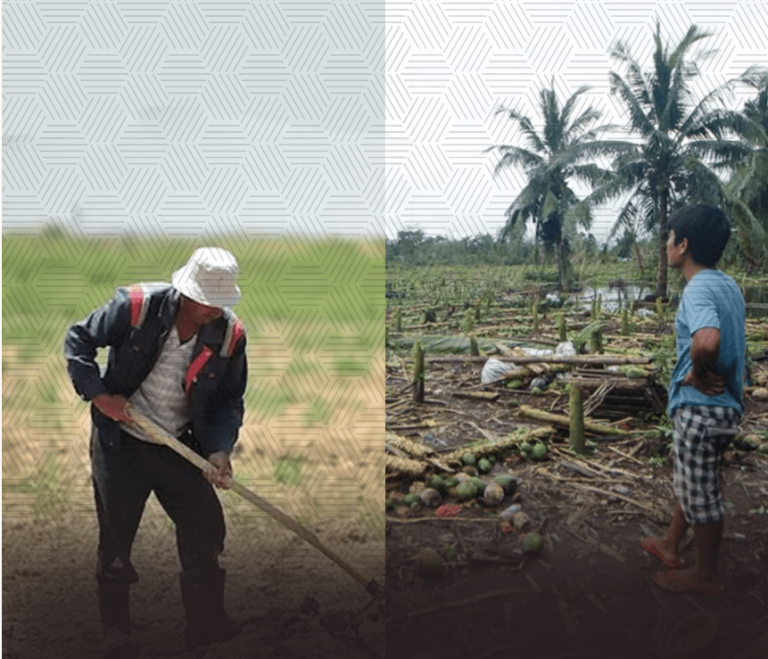Due to climate change-related circumstances and natural catastrophes, Filipino farmers are finding it difficult to produce enough food for the nation.

Source: The Weekly Sillimanian
According to the Department of Agriculture, agricultural damage brought on by typhoons in 2019 and 2020 were P8.1 billion and P14.25 billion respectively. The Philippines are still struggling to recover from the recent powerful typhoon Rai, which inflicted losses to agricultural products of P11.1 billion. Storm floods have destroyed more than 420,000 hectares of farming land and in certain areas, important staples like rice, coconuts, and sugarcane have been completely eradicated.
With this climate change, a more serious issue that the impoverished Filipino farmers would have to bear is the financial losses and agricultural damages. For a long time, experts have advocated for more robust insurance coverage and programs for farmers to assist them to manage risk and secure reimbursement in the event of a natural disaster. However, one of the primary programs dedicated to the well-being of Filipino farmers and Philippine crops, the Philippine Crop Insurance Commission (PCIC), has long been underfunded and understaffed.
One of the suggested financial solutions to solve these issues was Senate Bill 35, also known as the proposed Expanded Crop Insurance Act of 2019. It made an effort to alter the law, which had previously restricted access to crop insurance to farmers who took out production loans. Such laws ought to be improved upon in order to provide local farmers with the assistance and recognition they deserve.
References:
Philippine Institute for Development Studies. (2022, April 18). Left to Plow in Silence. Retrieved July 6, 2023, from https://www.pids.gov.ph/details/news/in-the-news/left-to-plow-in-silence


